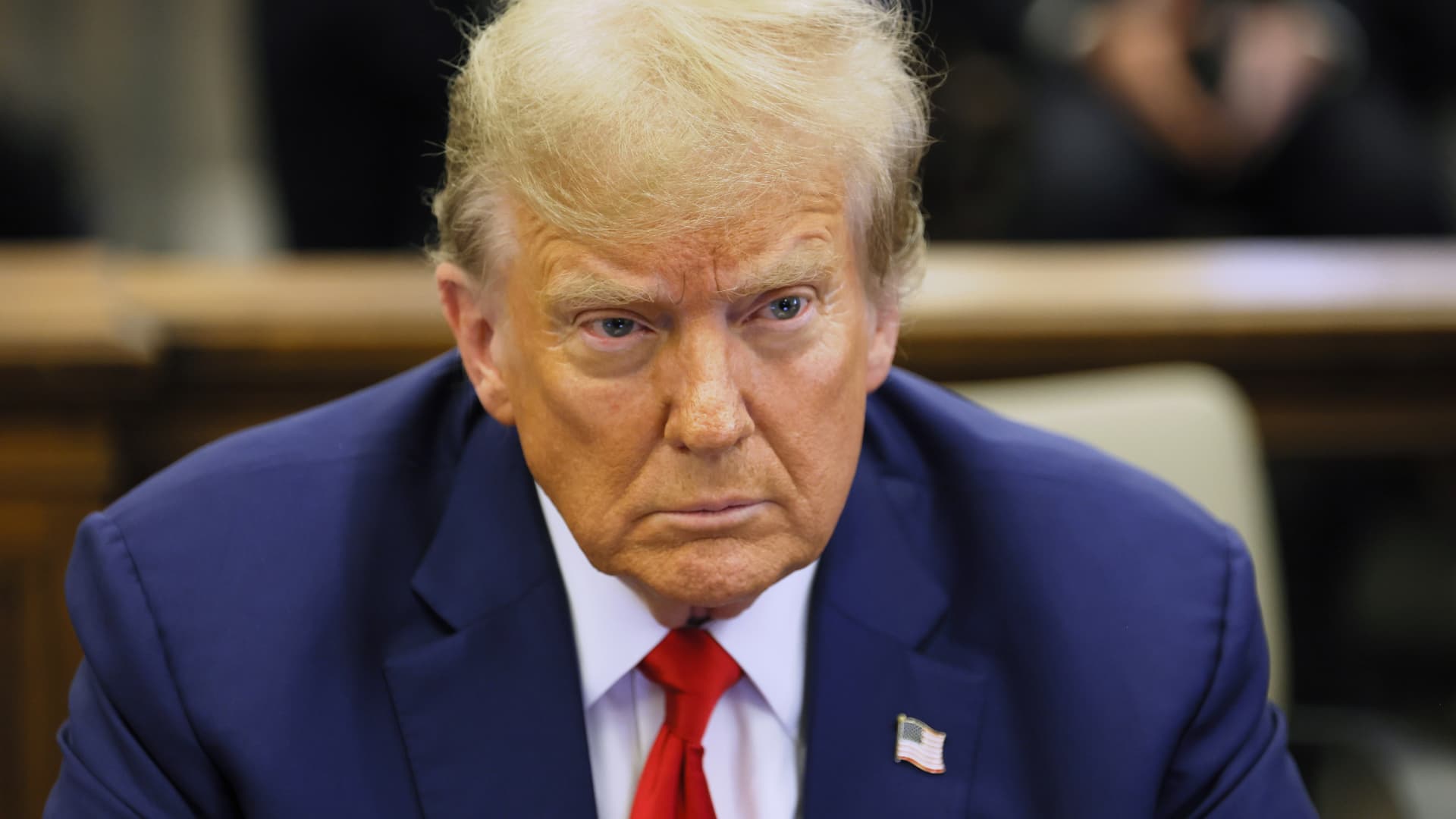Former U.S. President Donald Trump sits in the courtroom during his civil fraud trial at New York Supreme Court on January 11, 2024 in New York City.
Michael M. Santiago | Getty Images
Supreme Court Chief Justice John Roberts on Tuesday told Department of Justice special counsel Jack Smith to respond to a request by Donald Trump to delay implementing an appeals court ruling that found he does not have presidential immunity in his federal elections interference criminal case.
Roberts gave Smith a full week, until Feb. 20, to file an answer to the former president’s request, suggesting that the court might take its time reviewing broader questions related to the issue of immunity.
Trump, on Monday, asked the high court to temporarily pause last week’s decision by a three-judge panel federal appeals court in Washington, D.C., which rejected his argument that he could not be prosecuted in the case because he was president at the time he committed the acts that Smith charges were crimes.
Trump is accused in a four-count indictment in D.C. federal district court of crimes related to his challenge of the 2020 election results, and his efforts to block Congress from declaring President Joe Biden the victor in that contest.
He has pleaded not guilty in the case.
Trump, in his filing Monday, asked the Supreme Court just to delay the appeals court’s mandate.
If that mandate takes effect, proceedings in the case would resume in district court, including pre-trial motions being filed and argued, and the judge is likely to set a trial date before the end of this year.
Trump argues that implementing the mandate would “radically disrupt” his ability to campaign against Biden this year.
Trump, who is the front-runner for the Republican presidential nomination, in his filing Monday said he wants the mandate delayed pending the resolution of two related efforts to undo the appeals court ruling. Trump said he will ask the Supreme Court to take his appeal of the lower court’s decision, and he will also request that the entire judicial lineup of the appeals court rehear his argument on presidential immunity.
The Supreme Court could grant or deny that delay request, without hearing any oral arguments, after Smith files his response.
But the court also may choose to treat Trump’s filing as a petition to overturn the appeals court ruling and make a decision on that question either based just on written filings, or after hearing oral arguments. That route would lead to further delays in the case.

